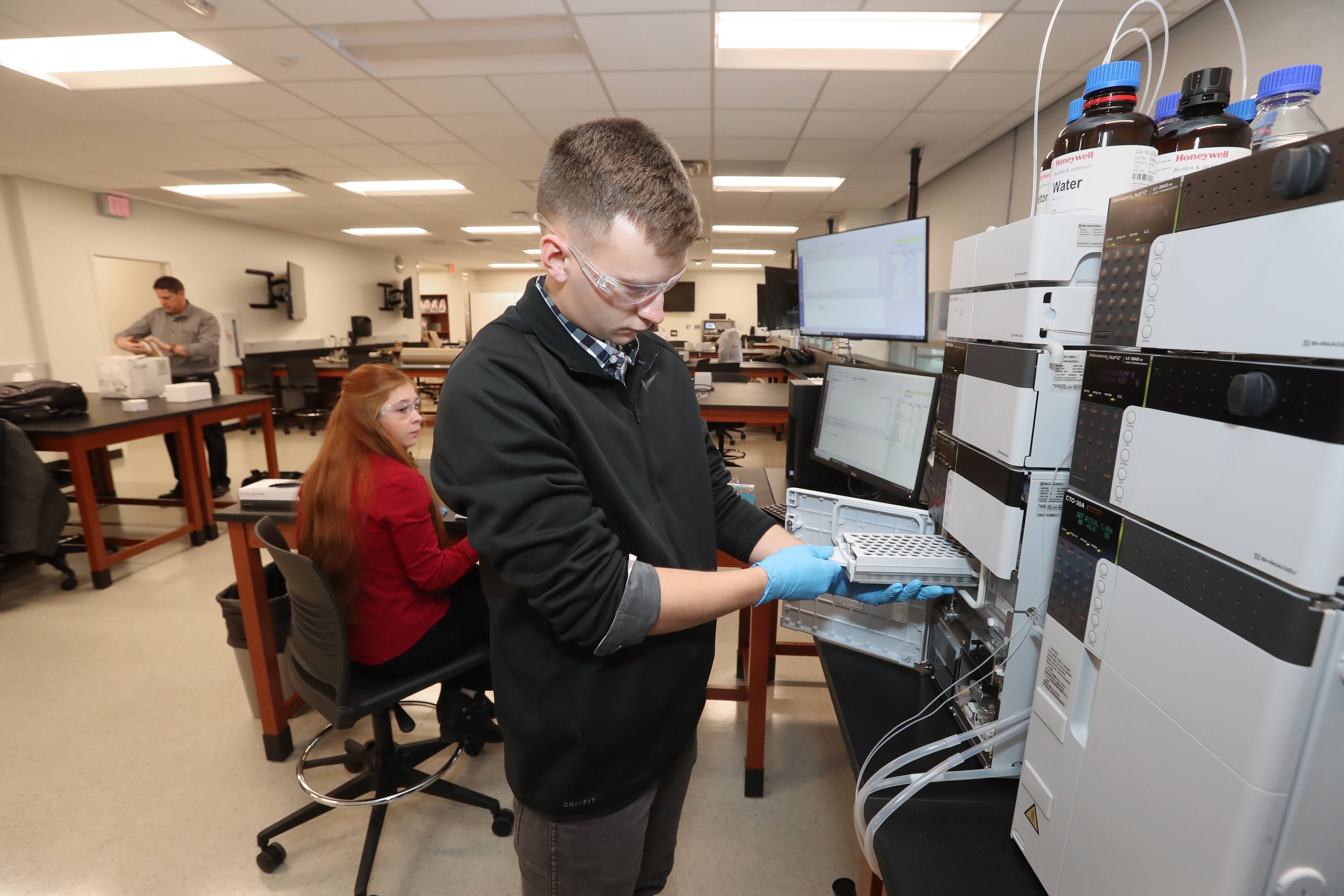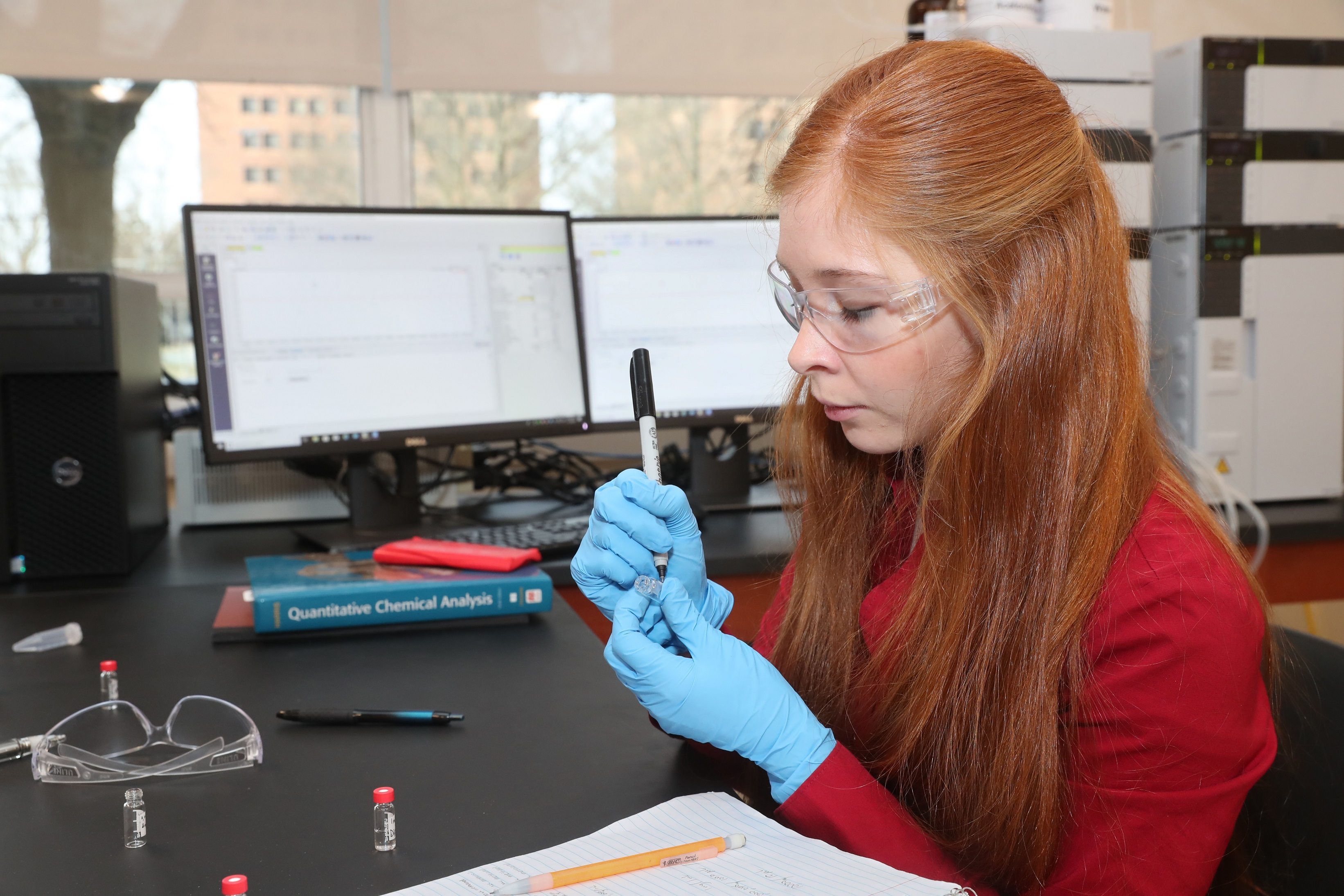Nationally recognized for student experience
The Wall Street Journal

Master of Science (M.S.)
Forensic Science
The master's degree program in forensic science at BGSU in Ohio is designed for students with strong science backgrounds who desire to work in a laboratory or current practitioners in the field who want to advance their careers and become leaders.
You will gain up-to-date knowledge and skills in forensic science to keep up with ever-changing methods and technologies in this dynamic, multidisciplinary profession. Our forensic science curriculum encompasses both the forensic biology and forensic chemistry disciplines.
BGSU’s forensic science programs are the product of a unique partnership with the Ohio attorney general. Our students have the rare opportunity to study on a campus with a world-class Bureau of Criminal Investigation (BCI) crime laboratory and investigation facility.
BGSU also is home to the Ohio attorney general’s Center for the Future of Forensic Science. The Center serves to facilitate forensic science academic programming, research and real-world practitioner training.
Note: Applicants to the forensic science M.S. program must have a Bachelor of Science in biology, chemistry or another closely related field.
Program highlights
- Unique partnerships. Our students have the rare opportunity to study on a campus with an Ohio BCI crime lab and investigation facility. BGSU also houses the Center for the Future of Forensic Science, which conducts cutting-edge forensic science research.
- Real-world crime scenarios. A “crime house” on campus gives students the ability to practice skills in an environment that mimics a real crime scene.
- Expert faculty. All our faculty members are accomplished forensic and CSI professionals.
- State-of-the-art facilities. Practice your skills with instrumentation used in real crime laboratories.
- Accelerated master’s program. BGSU undergraduates pursuing a bachelor’s degree in forensic science can apply for the accelerated master’s program.
- Active student organization. Students in the BGSU chapter of Delta Delta Epsilon – an international forensic science honors society – network, learn and work to advance the field of forensic science.
#1 public university in Ohio for career prep
The Wall Street Journal
Career opportunities
Graduates of our master’s program become forensic scientists with the current knowledge and skills coveted by employers across the country and around the world.
You will be prepared to assume leadership positions in local, state and federal government agencies and in private organizations as forensic scientists.
Career paths
- Crime scene response
- Drug chemistry
- Toxicology
- Forensic biology
- DNA analysis
- Trace evidence examination
- Latent prints
Quick Facts from the Bureau of Labor Statistics
Curriculum
The Master of Science in forensic science typically requires two full years of study (5 semesters), including one summer semester. You will learn advanced practical and theoretical aspects of forensic investigation. The curriculum combines classroom instruction, laboratory exercises and hands-on simulated forensic investigation.
If you plan to be a DNA analyst, you have the opportunity to take coursework in genetics, molecular biology, biochemistry and statistics. Note: credits for these classes do not count toward a MSFS degree.
Thesis and project options
All master’s degree programs at BGSU must include a culminating experience that provides students an opportunity to synthesize knowledge and experiences gained throughout the master’s program.
This program requires you to complete a Plan I Thesis Research Project.
The Forensic Science Education Programs Accreditation Commission (FEPAC) further requires that each master’s student complete an independent research or capstone project. The research/capstone project must culminate in a thesis or written report of publishable quality and an oral presentation.

Sample courses
- Principles of Crime Scene Investigation
- Forensic Biology
- Pharmacology/Toxicology of Drug Addiction
- Professional Responsibility – Interface of Law, Science and Ethics in Forensic Science
- Microscopy, Materials Analysis and Pattern Evidence
- Forensic DNA Analysis
- Forensic Applications of Analytical Chemistry and Instrumental Methods of
- Analysis
- Forensic Laboratory Management
Virtual lab tour
Take a guided video tour of the Center for the Future of Forensic Science Lab, Life Sciences 133 on our Ohio campus and see the tools we use in the lab:
- Ductless cyanoacrylate cabinet
- Gas and liquid chromatography mass spectrometers
- DNA analysis process
- Microscopes and ballistics tools
#1 university in Ohio – big or small, public or private – students would choose again
The Wall Street Journal
The forensic science master’s program is in the BGSU College of Arts and Sciences and is affiliated with the Center for the Future of Forensic Science at BGSU.
Accreditation
Bowling Green State University [BGSU] is accredited by the Higher Learning Commission. BGSU has been accredited by the Higher Learning Commission since 01/01/1916. The most recent reaffirmation of accreditation was received in 2022-2023, with our next reaffirmation of accreditation scheduled for 2032-2033. Questions should be directed to the Office of Institutional Effectiveness.
In 2023, the BGSU graduate forensic science program applied for accreditation through the Forensic Science Education Programs Accreditation Commission (FEPAC) and is currently progressing through the year-long FEPAC accreditation process.
Updated: 10/27/2025 12:51PM

